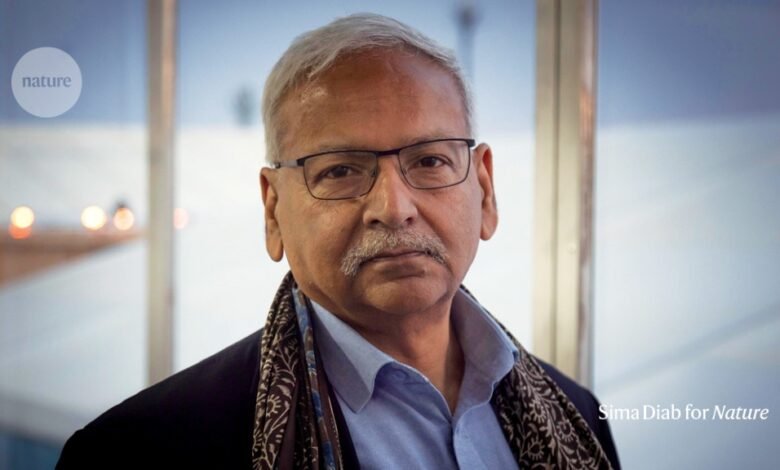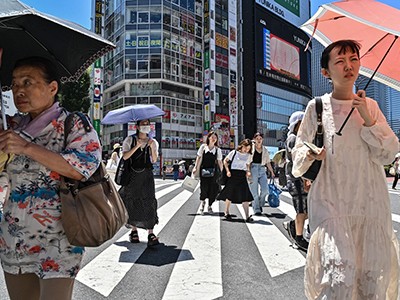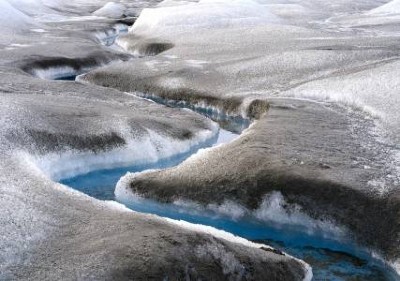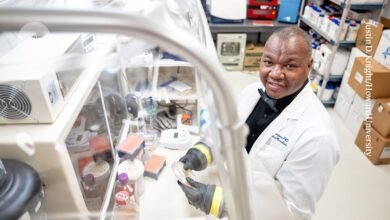

Credit: Sima Diab for Nature
Saleemul Huq was a tireless climate scientist and champion of climate justice. Throughout his career, he advocated for the rights of the world’s poorest and most vulnerable communities in the battle against climate change. He pushed for global funds to help communities to adapt and cope, and established institutions that echoed his visionary goals.
Huq portrayed low- and middle-income countries as heroes in the climate crisis, not victims. He died aged 71, and did not live to see one of the most important outcomes of his work: the operationalization of a ‘loss and damage’ fund with US$700 million in initial pledges at the opening of COP28, the 28th Conference of the Parties to the United Nations Framework Convention on Climate Change (UNFCCC) in Dubai, United Arab Emirates, in November.
Huq also had an extensive research career. As a lead author for third, fourth and fifth assessment reports of the Intergovernmental Panel on Climate Change (IPCC), he played a pivotal part in shaping global climate action. His work contributed to the award of the Nobel Peace Prize to the IPCC in 2007, as well as to UN Sustainable Development Goals 13 (on climate action) and 17 (on partnerships for the goals).
Approaching 1.5 °C: how will we know we’ve reached this crucial warming mark?
Huq was born in Karachi, Pakistan, in 1952, and his life was marked by resilience and determination. Escaping political turmoil in Pakistan, his diplomat parents embarked on a remarkable journey, traversing Afghanistan to reach India on a donkey in the early 1970s. His educational path took him through Germany, Indonesia and Kenya, culminating in a BSc in botany in 1975 and a PhD in 1978 from Imperial College London, on cyanide-resistant respiration in plant mitochondria.
In the mid-1980s, Huq founded an indepen-dent think tank, the Bangladesh Centre for Advanced Studies (BCAS) in Dhaka, to develop environmental policy and support the Bangladeshi government. He pioneered the concept of climate adaptation and helped at-risk communities to find their own solutions to problems caused by the changing climate. He stressed that attention should be balanced between climate mitigation and adaptation. A committed adherent of the ‘polluter pays’ principle, he urged wealthy nations to pledge sufficient funding for climate adaptation in low-income countries.
The same principle drove his campaign for a loss-and-damage fund. It took decades of negotiation to bring this idea, first proposed in the early 1990s by small island nations such as Vanuatu, to the point at which wealthy countries have begun to pledge serious money — not as aid but as compensation for the losses experienced by low-income countries as a result of industrialization in the global north. In 2001, Huq spearheaded the creation of the least developed countries (LDC) negotiating group under the UNFCCC. The group had a pivotal role in steering the climate negotiations towards vital milestones, including securing the 1.5 °C warming-limit target and addressing loss and damage due to climate impacts in the Paris agreement.
Another significant achievement was his role as founder and director of the climate-change research group at the International Institute for Environment and Development (IIED) in London. His pioneering efforts to link climate and economic development led to the Development and Climate Days at COP meetings, days when prominent experts discuss the intricate relationship between climate action and sustainable development. He later became a senior fellow at the IIED.
Catastrophic change looms as Earth nears climate ‘tipping points’, report says
Huq also founded the International Centre for Climate Change and Development, a Dhaka-based collaboration between the IIED, the BCAS and the Independent University, Bangladesh (IUB) in Dhaka, focused on adaptation research, government policy support and raising awareness of climate impacts in vulnerable communities. Returning to Bangladesh as its director, Huq became a guiding light for many climate researchers, activists and scientists, fostering locally driven solutions and empowering communities affected by climate change. He continued as a professor at the IUB and an adviser to the LDCs. His establishment of the LDC Universities Consortium on Climate Change provided research support, built climate knowledge and reduced reliance on consultancies.
As an advocate for climate justice, Huq was a constant voice in the media, calling for equitable solutions. In Bangladesh, he established the Climate Tribune, a regular supplement to the Dhaka Tribune newspaper, dedicated to climate journalism. He lent his expertise to many other initiatives including the Global Center on Adaptation (an international organization supporting adaptation solutions), and the Climate Vulnerable Forum (an international partnership of countries highly vulnerable to a warming planet). In 2020 he received Bangladesh’s National Environment Award, and in 2022, was made an Officer of the Order of the British Empire by Queen Elizabeth for his outstanding contributions to combating climate change. He was hailed as one of Nature’s 10 people who helped shape science in 2022, having achieved agreement in principle on the establishment of a loss-and-damage fund at the COP27 meeting in Sharm el-Sheikh, Egypt.
Saleemul’s passing is a profound loss. He leaves an indelible legacy as a visionary leader and tireless advocate for climate justice. That legacy endures through the many lives he touched, the institutions he built and his impact on the fight against climate change.
Source link






